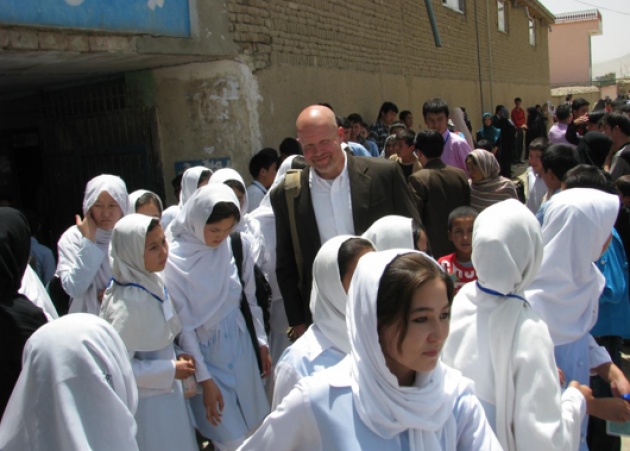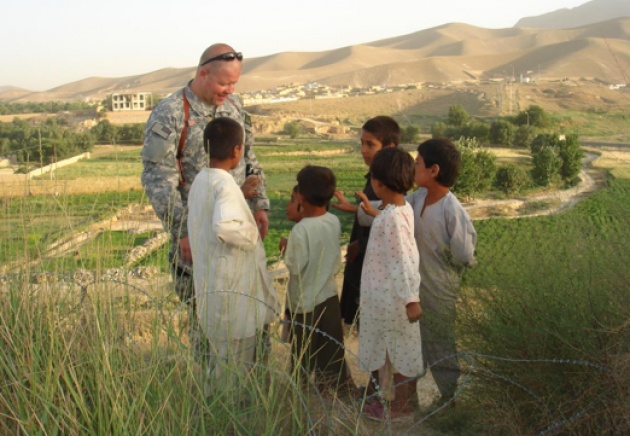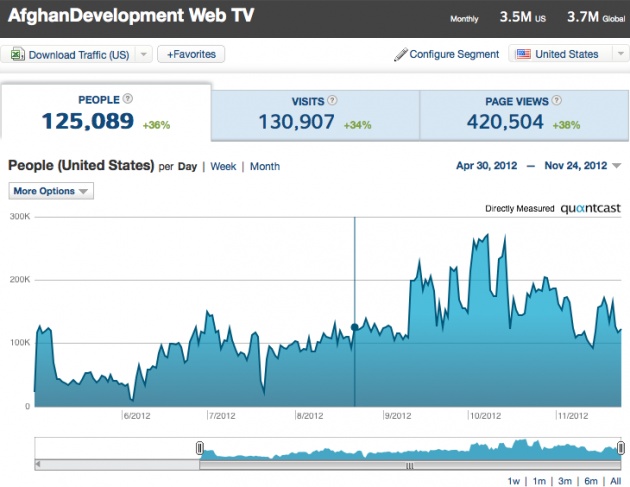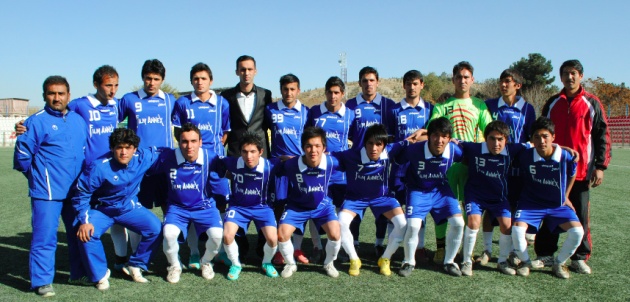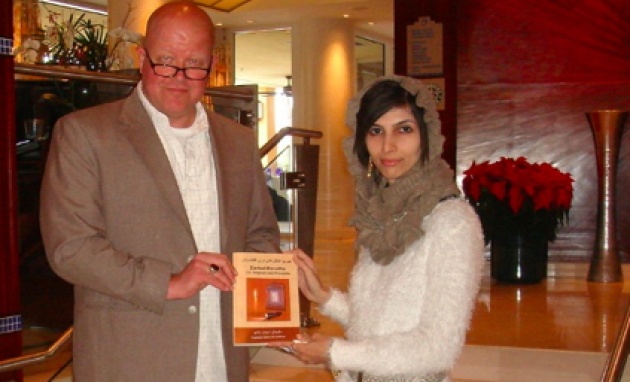
This week, in Miami, Roya Mahboob and I met with Captain Edward Zellem, author of Zarbul Masalha and Afghan Illustrated Proverbs. Captain Zellem is a gentle and strong man. 6' 2”, 250 lbs, he was a Greco-Roman wrestler in high-school and a football player at the University of Virginia. His handshake is powerful and so is his mind. For years, I visited South Miami Beach for the Miami International Film Festival but this time my trip to Florida had a very different purpose. We wanted to know more about Captain Zellem, his passion for Afghan proverbs and his vision for the development of Afghanistan and its youth.
In the last few weeks, we had already discussed a preliminary collaboration that brought some of Captain Zellem's Afghan Proverbs on the Examer educational software. It was the first step towards a mutual collaboration to promote the wisdom of Afghanistan and Central and South Asian cultures.
It 's our intention to expand this collaboration to his entire library of proverbs and broaden the concept to other cultures and languages in Afghanistan and Central and South Asia. Our goal is to involve the 30,000 students already connected to the World Wide Web, expand to the 160,000 students in the area of Herat, and from there to the rest of Afghanistan and Central and South Asia. This leads to a student network of about 12 million people.
Growing the Examer Educational Software and network to 12 million students in Afghanistan and Central and South Asia is accessible, manageable and sustainable. We are leveraging the existing technology of Film Annex, an online film network with over 50 million viewers per month. The Afghan Development Web TV has already a viewership of 3.7 millions and growing.
Captain Zellem introduced Roya and me to a business representative of a leading Afghan-American foundation involved in the development of Afghanistan, in particular in women health, literacy and environmental development. We shared with him our goals and achievement and discussed how we can work together to expand our projects in Kabul and in other regions in Afghanistan. We are also interested in scheduling interviews and documentaries pertaining their organization's activities and projects. Our viewers are eager to learn more about Afghanistan and Central and South Asia economic and cultural development. Our students are eager to learn more about the opportunities within and outside Afghanistan and Central and South Asia.

We are now on our way back to New York, and we just discussed how we can broaden our content from Afghanistan. We will assign a team of writers to a pilot project of new and reports on CBS show 60 minutes, one of my favorite and most inspirational shows available in the US. The concept is simple: the Afghan writers will watch CBS's 60 minutes episodes on Monday mornings, Afghanistan time. They will pick the episodes they find more interesting, write an article in Farsi or Pashto and publish it on their personal blog. The Annex Press will reward them by paying them for their work. On the other hand, we will have a translator in New York discussing the work done by the Afghan writers and re-reporting the information from CBS's 60 Minutes. By doing so, we feed interesting news to Afghanistan and Afghanistan feed back to us their prospective from Central and South Asia. It is a much more interesting approach and open source way of looking at news.
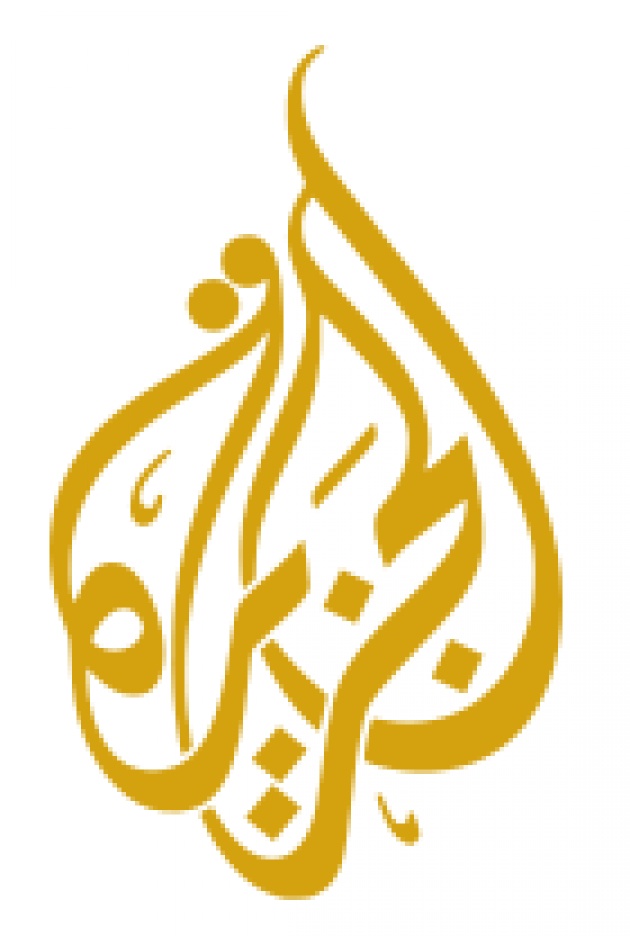
Al Jazeera and CBS are great news networks. But what if Al Jazeera and CBS could benefit from the work of thousands of young reports from Central and South Asia? What would be the outcome of an interactive and professional social media outlook for this project? And what if we add to it a strong women involvement and interpretation, rewarding young women for their work in writing and reporting? When 10,000 students from Central and South Asia will write commentaries, essays and articles on news from CBS's 60 minutes or a private company announcement, just imagine the impact on social media and financial markets! And all will be tracked with advanced technology and demographic studies as we are already doing with platforms like Quantcast and Hub Spot.
We acquired 10% of Esteqlal soccer team, established a monthly sponsorship, and got Film Annex logo on the team uniforms. We are filming trainings, games and interviews. By doing so, we transform a predominantly male sport into a digital entertainment project that is edited and narrated by women, managed and broadcast by women, distributed and monetized by women. Women today are the pillar of traditional family structure and the pillar of professional social media, online advertising and financing.
Today, not tomorrow!

